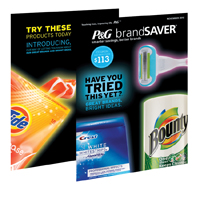2012 Top 100: Packaged Goods
No. 1 player P&G made progress toward its purpose-inspired growth strategy, while Unilever reported gains in its transformation to a sustainable growth company. Most of the companies on this list followed their lead with modest sales gains in 2011.
Procter & Gamble
Each year, Procter & Gamble makes progress in its purpose-inspired growth strategy. In 2011, for example, the company consolidated its three Global Business Units (GBUs) into two: Beauty & Grooming and Household Care. As a result, the Health Care segment largely became part of P&G’s Beauty and Grooming GBU, while the Snacks and Pet Care segment became part of P&G’s Household Care GBU. Transformational initiatives like these contribute to good business results in a very demanding business and economic environment. In 2011, net sales grew 5 percent. Net sales increased another 3 percent to $83.7 billion for fiscal 2012 on unit volume that was in line with the prior year period.
 Unilever Group
Unilever Group
In 2011, Unilever made significant progress in its transformation to a sustainable growth company despite difficult markets and other external challenges. Whether it be a focus on the Unilever Sustainable Living Plan, the extension of brands into new markets, or the actions to remove unsustainable cost burdens from its structure, Unilever is doing the right things to strengthen the company for the longer term however difficult they may be in the short term, said CEO Paul Polman in a 2011 financial statement. The company is also reaping benefits of recent acquisitions, such as TRESemm in Brazil and Simple in the United States, both launched within nine months of completing the acquisition of Alberto Culver.“
 Newell Rubbermaid
Newell Rubbermaid
Newell Rubbermaid revealed a bold new organization model in October 2012. A Brand and Category Development organization will be accountable for building big brand ideas, high-impact disruptive innovation and a true point of difference. Meanwhile, a Best-in-Class Execution and Delivery organization will be accountable for P&L management and delivering the maximum commercial value from growth ideas built by the Development organization. Also, Newell Rubbermaid will create much flatter structures, giving bigger roles to key leaders and driving simplification throughout the company.
Procter & Gamble

Each year, Procter & Gamble makes progress in its purpose-inspired growth strategy. In 2011, for example, the company consolidated its three Global Business Units (GBUs) into two: Beauty & Grooming and Household Care. As a result, the Health Care segment largely became part of P&G’s Beauty and Grooming GBU, while the Snacks and Pet Care segment became part of P&G’s Household Care GBU. Transformational initiatives like these contribute to good business results in a very demanding business and economic environment. In 2011, net sales grew 5 percent. Net sales increased another 3 percent to $83.7 billion for fiscal 2012 on unit volume that was in line with the prior year period.
 Unilever Group
Unilever GroupIn 2011, Unilever made significant progress in its transformation to a sustainable growth company despite difficult markets and other external challenges. Whether it be a focus on the Unilever Sustainable Living Plan, the extension of brands into new markets, or the actions to remove unsustainable cost burdens from its structure, Unilever is doing the right things to strengthen the company for the longer term however difficult they may be in the short term, said CEO Paul Polman in a 2011 financial statement. The company is also reaping benefits of recent acquisitions, such as TRESemm in Brazil and Simple in the United States, both launched within nine months of completing the acquisition of Alberto Culver.“
 Newell Rubbermaid
Newell RubbermaidNewell Rubbermaid revealed a bold new organization model in October 2012. A Brand and Category Development organization will be accountable for building big brand ideas, high-impact disruptive innovation and a true point of difference. Meanwhile, a Best-in-Class Execution and Delivery organization will be accountable for P&L management and delivering the maximum commercial value from growth ideas built by the Development organization. Also, Newell Rubbermaid will create much flatter structures, giving bigger roles to key leaders and driving simplification throughout the company.

